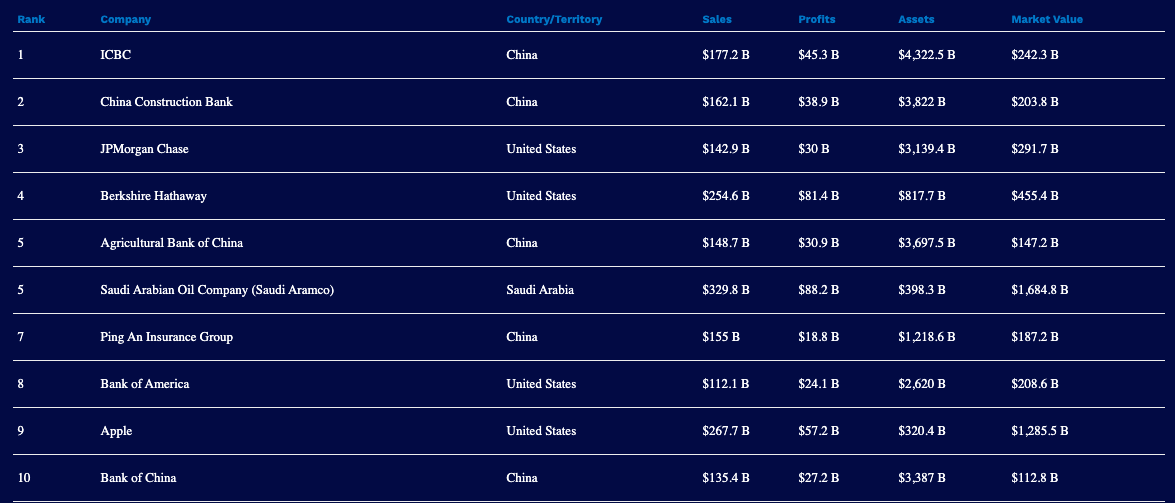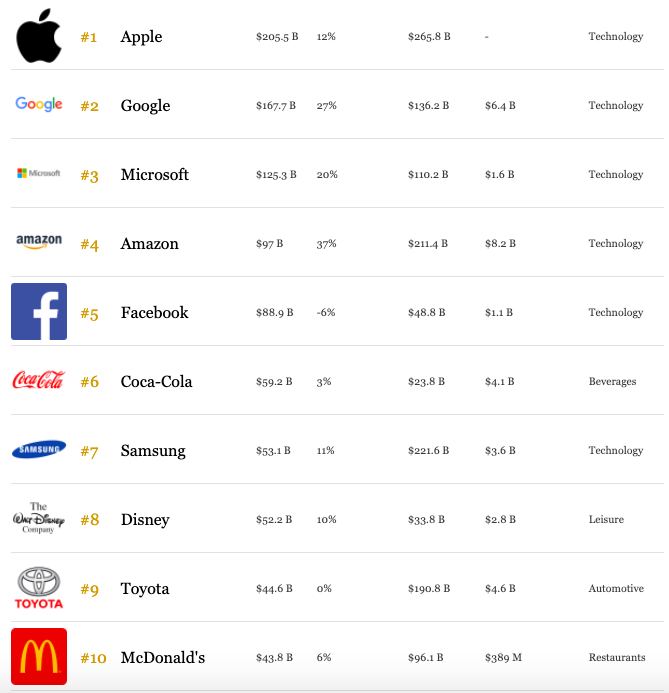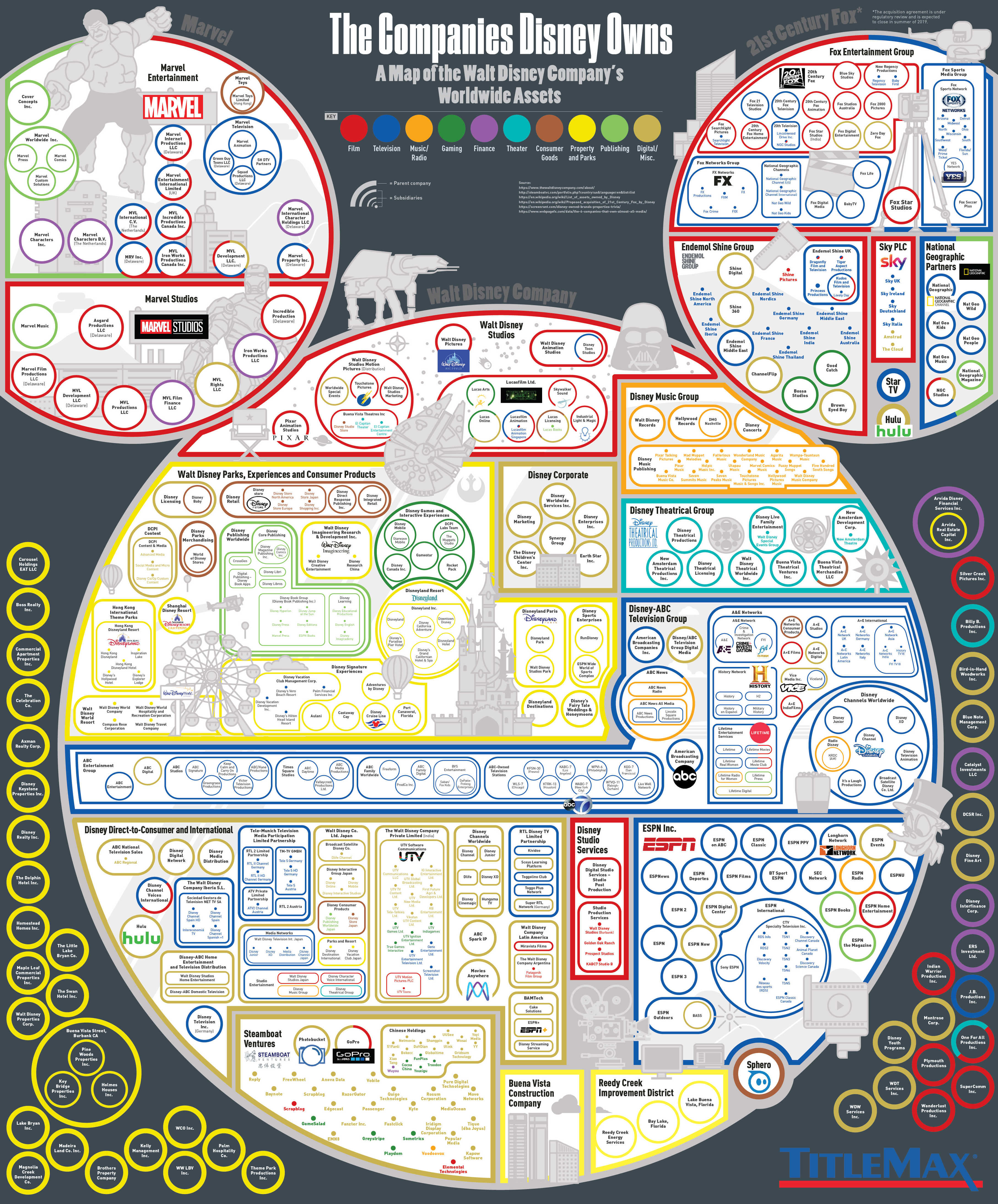The Top 100 Most Powerful Companies of the World dominate nearly every sector and serve our consumption in nearly every aspect. As consumers, there are no days that go by with us seeing these brands or companies. And the most interesting part is… they are still getting bigger!
They dominate the market and if they were to go bankrupt, thousands of jobs would be lost. Economies would crumble. World leaders would buckle their knees and clench their teeth in fear.
Which powerful companies are we talking about?
Is it the tech giants like Apple, Amazon, or Microsoft? Or is it Walmart or General Motors? The problem is simple. There is very limited corporate governance on a global scale and companies know this. They are largely bound by national laws, rather than international treaties and have more liberty to outplay regulations and restrictions.
Who is the most powerful?

Tech and financial giants have been in a tight race for the title of the most valuable publicly traded company for quite some time. But it is hard to estimate the ones with the most power. It would be quite arbitrary to just look at the numbers. Some companies have more outreaches influence over us through branding and marketing.
Corporations face loud criticism on issues from tax avoidance to environmental damage and paying low wages. Public discontent over inequality has landed at their door, amid the feeling that they have accumulated too much power and need to be restrained.
Most companies this year have seen their market values drop considerably since last year because of COVID-19. the past few months have been especially brutal for the airlines and a blessing for eCommerce retailers. But if we talk numbers, the financial sector tends to dominate.
The list of 2020’s GLOBAL 2000 can be found below according to Forbes 2020.
If calculating the Asset value of the top ten most powerful public companies in the world, we’d have 23.740 Trillion dollars. That is quite the sum, considering that the world GDP was estimated to be $91.98 trillion in 2020.
On the financial front are some of the major US and Chinese banks. ICBC, (Industrial and Commercial Bank of China) remained in the top spot for the eighth straight years with more than $4.3 trillion in assets.
But we must also look at the psychological effect of several giants. The tech industry has been on a consistent boom and has a different kind of proximity to its clients. Powerful internet companies like Amazon, Facebook, Google are used by billions on a daily basis. Corporate fiat is increasingly being tested in the court of public opinion. Should companies like Amazon be broken up Rockefeller’s oil empire?
In the era of the internet and global communications, protests against corporate power know no national boundaries. Beyond corporate bargaining power, there are political reasons why multi-billion companies are likely to remain largely nationally supervised. Governments do not answer to international consensus but to local voters.
And brands like Coca-Cola, Walt-Disney, McDonald’s have reached the farthest and even poorest parts of the world.
The 10 biggest brand names out there are listed on Forbes
Monopolistic strategies displayed by giant corporations bask in the principles and notions of capitalism.
Disney is a perfect example of one of the most powerful companies in our times. It is only the 8th biggest brand name in the world. Yet it owns an empire consisting of the biggest franchises we’ve ever known since childhood. In its nearly 100 year history, since 1923, Disney has been an interesting case of mergers and acquisitions.
Modern technology has allowed companies to shift intellectual property to gain from lighter regulations and tax arbitrage. A megacorporation needs a sales and marketing presence in countries with large markets like China and India with a cheaper workforce. Research and development operations are allocated by choice or preference.
These strategies are present in nearly every large company that wants to move forward at a pace that would circumvent market obstacles by competitors. While there is a debate, saying companies are too powerful, many people want their politicians to respond nationally by imposing distinctive rules. But according to the Financial Times, it is easier for activists to protest, and for politicians to grill business leaders publicly, than to pass laws and regulations.
Ever thought about building your own company online?
Do you dream of building a company yourself? Why not start by creating a website that lets you reach out to thousands of people. We’d recommend trying out Bluehost to grow an online business to craft your own corporate world.




